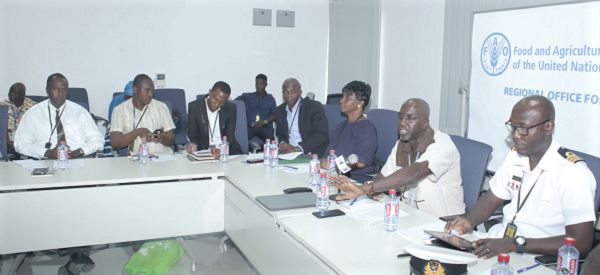
FAO engages stakeholders on UN’s ‘One Health’ concept
The Food and Agriculture Organisation (FAO) has held a stakeholders forum on how to deliver the United Nation’s “One Health” concept in Ghana and on time.
The One Health concept is a worldwide strategy to expand interdisciplinary collaborations and communications in all aspects of health care for humans, animals and the environment.
It recognises the health of human beings as connected with the health of animals and the environment.
The forum formed part of post-international One Health Day celebration activities to keep the campaign for optimal health for all human, animals and the environment going.
The One Health Day is celebrated across the world on November 3, every year.
The day is marked to, among other things, bring attention to the One Health approach to addressing shared health threats at the human-animal-environment interface.
Disease threat
In his remarks to open the forum in Accra, the Regional Manager for West and Central Africa for the FAO- Emergency Centre for Transboundary Animal Diseases FAO-ECTAD), Mr Baba Soumare, underscored the need for a consistent multiple-discipline collaboration to effectively deal with the increasing threats of diseases globally.
He said although the concept had existed for over 15 years, the high rate of emerging and re-emerging diseases and their global impact had made the delivery of the One Health concept a must.
He cited the Ebola virus, Lassa fever and other disease outbreaks as evidence of how compulsory the One Health Concept had become.
“All stakeholders must team up against these threats, we can no longer expect that just one sector could deal with the situation, somehow we all agree that we need to collaborate and ensure consistency in the collaboration for optimal result,” he said.
Wildlife
An Epidemiologist at the Ghana Wildlife Division of the Forestry Commission, Mr Richard Suu-Ire, said the areas of work in which the One Health approach was, particularly, relevant included food safety and the control of zoonosis (diseases that can spread between animals and humans, such as flu, rabies and Rift Valley Fever).
He said out of the more than 1,500 existing infectious diseases in humans, 60 per cent were zoonotic.
GHS
The Head of Disease Surveillance Unit at the Ghana Health Service, Dr Franklin Asiedu-Bekoe, said timely sharing of data would enhance national disease surveillance and response.
Writer’s email
